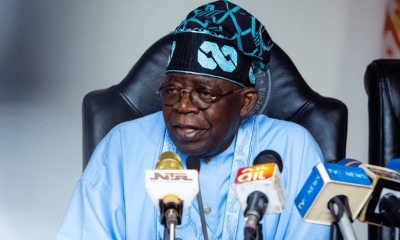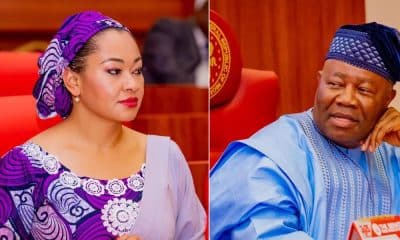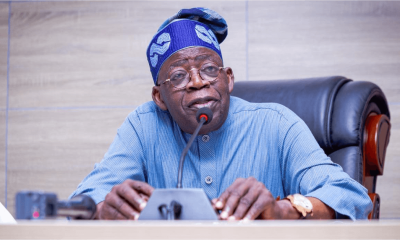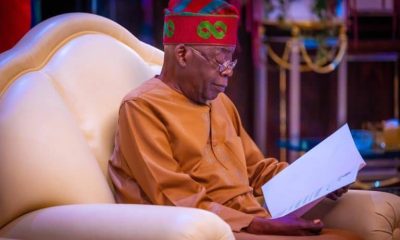Business
Latest Petrol Price Hike News, Update On Fuel Scarcity For Oct. 30th, 2024
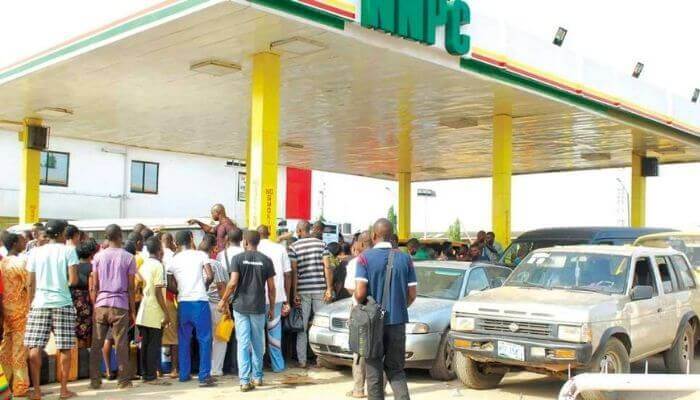
As Nigerians continue to groan over the recent increase in fuel prices by the Nigerian National Petroleum Company (NNPC) Limited, Naija News brings you the latest update on petrol scarcity, fuel price increase and Govt/citizens’ reactions.
Tinubu Govt Increases Fuel Price Again
In the face of mounting economic challenges, the administration of President Bola Tinubu, through the Nigerian National Petroleum Company Limited (NNPCL), has raised the pump price of petrol.
Naija News reports that the revised prices mean residents in Lagos and Abuja will now pay N1,025 and N1,060 per litre, respectively.
In October, petrol was priced at N1,030 in Abuja and N998 in Lagos at NNPCL stations, while other stations charged between N1,150 and N1,200 per litre.
According to Peoples Gazette, NNPCL stations in Lagos and Abuja displayed the updated prices on Tuesday, a move attributed to prevailing economic conditions that could further strain Nigerians, already facing a steep rise in the cost of living.
Since President Tinubu took office on May 29, 2023, and announced the end of the fuel subsidy, petrol prices have soared from N145 to over N1,000, intensifying the financial strain on citizens.
Petrol: President Tinubu Meets Dangote, Kyari, Others
President Bola Ahmed Tinubu is currently being briefed by the Implementation Committee on Crude Oil and Refined Products Sales in Local Currency at the Aso Rock Presidential Villa, Abuja.
Chaired by Finance Minister Wale Edun, the committee includes Aliko Dangote, Chairman of Dangote Group, and Mele Kyari, Group CEO of the Nigerian National Petroleum Company Limited (NNPC).
According to The PUNCH, the committee members arrived at the Council Chamber shortly after 2:00 pm.
This briefing follows the Federal Government’s October policy shift to sell crude oil to the Dangote Refinery in naira rather than U.S. dollars, a move approved by the Federal Executive Council.
The FG aims to stabilize domestic fuel prices and strengthen Nigeria’s currency by reducing reliance on dollars in oil transactions.
Under this policy, the NNPC is authorized to supply crude oil in naira, beginning with the Dangote Refinery as the pilot facility.
Ghana Considers Importing Petroleum From Dangote Refinery To Reduce Price
The Ghana National Petroleum Authority (NPA) has announced plans to consider sourcing petroleum products from the newly operational Dangote Petroleum Refinery in Nigeria to reduce the country’s reliance on costlier imports from Europe.
The potential shift was disclosed by NPA Chairman Mustapha Abdul-Hamid on Monday at the OTL Africa Downstream Oil Conference held in Lagos.
The Dangote Refinery, which officially commenced refining crude oil on September 3, has a production capacity of 650,000 barrels per day (bpd) and began its initial operations in January with diesel and aviation fuel production.
Once the refinery reaches full capacity, Abdul-Hamid explained, Ghana could significantly reduce its $400 million monthly bill on European imports.
“If the refinery reaches 650,000 bpd, all that volume cannot be consumed by Nigeria alone. So instead of us importing from Rotterdam, it will be much easier for us to import from Nigeria, and I believe that will bring down our prices,” Abdul-Hamid noted.
He further explained that importing from Nigeria would also lower freight costs, which could positively impact the prices of other goods and services in Ghana.
Abdul-Hamid added that a common African currency could further reduce the reliance on the dollar, a move he believes would stabilize the region’s trade and currency demands.



